Eight St. Michael’s-led research projects receive CIHR project grants

By Anna Wassermann
Eight projects led by researchers in the Li Ka Shing Knowledge Institute at St. Michael’s Hospital have received more than $3.4 million in funding from the Canadian Institutes of Health Research (CIHR) Fall Project Grant competition.
CIHR project grants support researchers pursuing projects with the greatest potential to advance health-related fundamental or applied knowledge, health research, health care, health systems or health outcomes.
The eight successful St. Michael’s-led projects address knowledge gaps and challenges in the areas of drug use, biases in digital systems, caregiver supports, inequities in genomic medicine and HIV treatment. Here are the summaries.
Understanding opioid use and harms among First Nations People in Ontario: Integrating administrative data with guidance from communities

Dr. Tara Gomes
Rates of opioid-related harm in Ontario are among the highest in the country and disproportionately experienced by First Nations people. Dr. Tara Gomes and her team will be exploring patterns of opioid use and related harm, as well as pathways of health-care use and treatment outcomes among First Nations people – both broadly and in the context of the COVID-19 pandemic – to provide First Nations communities with an understanding of the opioid crisis in their communities. The study will also identify opportunities for an evidence-based approach to public health and policy development with broad implications across Canada.
Preventing injecting and overdose by disrupting injection drug use transitions: The PRIMER II study
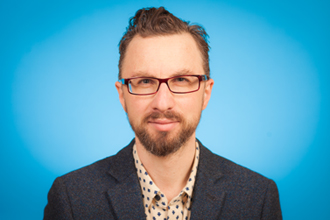
Dr. Dan Werb
Research indicates that people who inject drugs – a key risk factor for overdose death – play a critical role in facilitating the entry of others into drug injecting. A study led by Dr. Dan Werb will investigate whether enrolling people who inject drugs into a medication-assisted treatment for opioid use disorder may reduce their risk of initiating others into drug injecting. The study will also examine the efficacy, adaptability and scalability of this approach for preventing injection drug use across various settings.
The development of a risk of bias assessment tool for network meta-analysis

Dr. Andrea Tricco
Systematic reviews with network meta-analyses (NMAs), which synthesize and compare existing medical literature on a specific topic, are often used by patients, health-care providers and policy makers to make decisions about treatment. But NMAs can contain dangerous biases that distort the findings. Dr. Andrea Tricco and her team will explore biases in NMAs to develop and evaluate their own tool that assesses the risk of these biases. The novel tool will help patients, health-care workers and policy makers choose the highest quality NMA for their needs.
RESILIENCE (RESponsive Inquiry Linking IntervENtions and Caregiving Experiences)
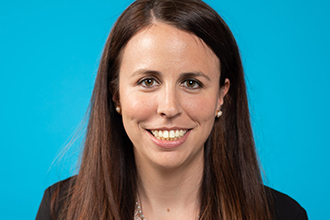
Dr. Jennifer Watt
Various interventions are available to improve the quality of life and mental health outcomes of friends and family caregivers of persons with dementia in Canada. But knowing which interventions work best can be challenging. A team led by Dr. Jennifer Watt will review the literature and previous trials describing the efficacy of various interventions for caregivers of persons living with dementia, to understand which interventions work best. One of the first studies of its kind, this work will support the implementation of evidence-informed interventions that are tailored to the needs of family and friend caregivers during and after the COVID-19 pandemic.
The Genetics Navigator: A novel digital tool to advance quality and equity in genomic medicine
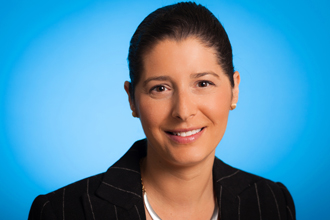
Dr. Yvonne Bombard
Genome-wide sequencing is increasingly being used in routine medical care but the high cost and complexity of sequencing often results in unequal access, increased wait times and inconsistencies in care. Dr. Yvonne Bombard and her team will develop and evaluate their own patient-centred digital platform, called The Genetics Navigator, to determine whether digital platforms can improve patient experience, access to under-served communities and clinical workflow efficiency.
Identifying intersectional stigma intervention targets for people who inject drugs in a high-risk international setting
Persons who inject drugs often contend with stigmas related to HIV, drug use and drug treatment, reducing their access to key HIV prevention services. A study led by Dr. Dan Werb will investigate the ways that intersecting stigmas impede HIV prevention efforts among adults in Kyrgyzstan, which is home to some of the highest growth rates of HIV worldwide. The results of this study will help researchers develop stigma reduction intervention strategies tailored to urban and rural regions in Kyrgyzstan.
Identifying and mitigating bias in machine learning models used in population health
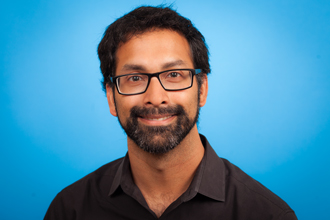
Dr. Andrew Pinto
It’s well recognized that machine learning models, which are trained to recognize and learn from patterns in data, can replicate biases, whether in the data or among people developing the models. A project led by Dr. Andrew Pinto will explore machine learning models used in population health to identify biases and develop guidelines for model developers to reduce bias in machine learning models. The findings will support efforts to ensure that artificial intelligence applications contribute to reducing, rather than exacerbating, health inequities.
Burden of COVID-19 among people living with HIV in Ontario
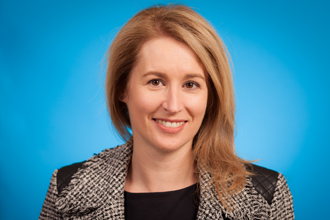
Dr. Ann Burchell
People living with HIV, and who are taking medications to control their HIV infection, seem to get infected with COVID-19 and become hospitalized at a similar rate as the general population. But evidence in this area is mixed and more research is needed. Dr. Ann Burchell and her team will be conducting a study to identify the number of people with HIV who have been infected with COVID-19 since the start of the pandemic and determine whether people with HIV develop more severe illness compared to people who are HIV-negative in Ontario. The results of this study will be used to inform health care and health services planning for people living with HIV.
About St. Michael’s Hospital
St. Michael’s Hospital provides compassionate care to all who enter its doors. The hospital also provides outstanding medical education to future health care professionals in more than 27 academic disciplines. Critical care and trauma, heart disease, neurosurgery, diabetes, cancer care, care of the homeless and global health are among the Hospital’s recognized areas of expertise. Through the Keenan Research Centre and the Li Ka Shing International Healthcare Education Centre, which make up the Li Ka Shing Knowledge Institute, research and education at St. Michael’s Hospital are recognized and make an impact around the world. Founded in 1892, the hospital is fully affiliated with the University of Toronto.
About Unity Health Toronto
Unity Health Toronto, comprised of Providence Healthcare, St. Joseph’s Health Centre and St. Michael’s Hospital, works to advance the health of everyone in our urban communities and beyond. Our health network serves patients, residents and clients across the full spectrum of care, spanning primary care, secondary community care, tertiary and quaternary care services to post-acute through rehabilitation, palliative care and long-term care, while investing in world-class research and education. For more information, visit www.unityhealth.to.
